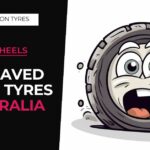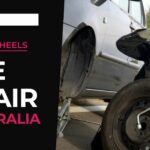Car modification has been a much loved past time in Australia for many decades. Ask your Dad, or even your Grandad, and they’ll tell you story of their old Holdens or Fords, or the time their mate did burnouts in their V8 outside the cop shop.
From engine upgrades to custom body kits, modifying our cars allows us to maximise enjoyment and be a part of one of the best and most rewarding enthusiast communities out there.
However, we must understand and adhere to the legal regulations governing car modifications to ensure safety and compliance on the roads. In Australia this is harder than other western countries due to more stringent modification laws, and to make this worse they differ in each state and territory of Australia.
Understanding Car Modification Laws in Australia
Australia follows a combination of federal and state-based regulations for car modifications.
The Australian Design Rules (ADRs) at the federal level set the safety and emissions standards for vehicles. In addition to that, specific car modification laws are managed by each state and territory’s road transport authority.
More information: Australian Design Rules (ADRs)
Let’s take a look at car modification laws by state:
New South Wales (NSW)
In NSW, car modifications are regulated by the Roads and Maritime Services (RMS).
Engine modifications, exhaust systems, suspension changes, and wheel alterations must comply with specific requirements.
Many modifications require certification by a licensed engineer.
More information: Modified and non-standard vehicles (NSW Goverment)
Victoria (VIC)
The VicRoads oversees car modification laws in Victoria.
Body modifications, engine swaps, brake upgrades, and lighting alterations must meet safety standards.
Some modifications may also need engineering approval.
More information: VicRoads – Vehicle Standards Information
Queensland (QLD)
In Queensland, the Department of Transport and Main Roads (TMR) manages car modification regulations.
Vehicle height, steering modifications, and safety equipment changes have specific guidelines.
Some modifications require an engineering certificate or inspection.
More information: Department of Transport and Main Roads (TMR) – Vehicle Modifications
Western Australia (WA)
The Department of Transport in WA regulates car modification laws for those in the wild west.
Engine modifications, exhaust systems, suspension changes, and wheel and tyre alterations must meet specific requirements.
Off-road and 4WD vehicles may have additional considerations.
More information: Department of Transport – Vehicle Modifications
South Australia (SA)
The South Australian Department for Infrastructure and Transport oversees car modification regulations.
Lighting, window tinting, vehicle height adjustments, and performance modifications have specific rules.
Engineering certification may be necessary for certain modifications.
More information: Department for Infrastructure and Transport – Vehicle Standards
Tasmania (TAS)
Tasmania’s car modification laws are managed by the Transport Tasmania.
Emission standards, noise regulations, and certification requirements are essential considerations.
Compliance with national standards is essential for modified vehicles.
More information: Transport Tasmania – Vehicle Standards
Australian Capital Territory (ACT)
Car modification laws in the ACT are regulated by Access Canberra.
Engine swaps, exhaust systems, and other modifications have specific requirements.
Vehicles used on public roads must meet specific restrictions.
More information: Access Canberra – Vehicle Standards
Northern Territory (NT)
In the Northern Territory, the Department of Infrastructure, Planning, and Logistics manages car modification regulations.
Engineering certificates and compliance with national standards are necessary for various modifications.
There are specific considerations for modified 4WD vehicles.
More information: NT Government – Vehicle Modifications
Complying with car modifying laws
Understanding and adhering to car modification laws in Australia is essential to ensure road safety and legal compliance, which is why they’re put in place. As modification enthusiasts we must always adhere to local car modification laws, as the last thing we want is big fines or our car impounded.
Each state and territory has its own set of regulations, and as an enthusiast it is up to you to research and comply with the specific requirements for your location.
Always verify the latest information with the respective road transport authority or government department before making modifications to your vehicle, and get an engineering certificate when required. If you can’t do that, be aware of the risks or stick to track use.
Generally, the purpose of laws and regulations for car modifications are to keep you and other road users safe on the roads.








